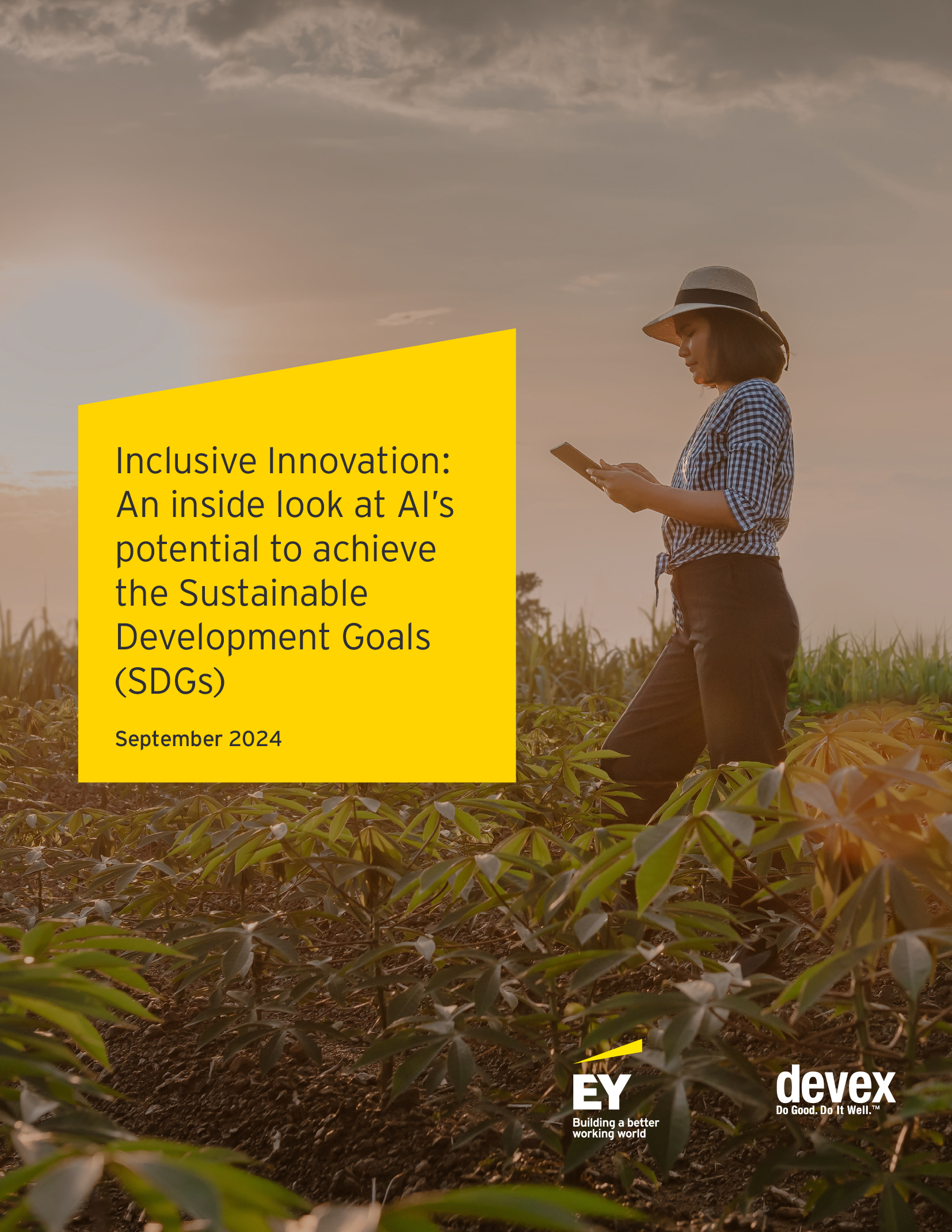TBD
An inside look at AI's potential to achieve the Sustainable Development Goals (SDGs)
Download the PDF report
Over the past 20 years, the United States has invested over $120 billion to end the HIV and AIDS crisis, which once claimed 3 million lives annually. Authorized by Congress in 2003, the President’s Emergency Plan for AIDS Relief (PEPFAR) became the largest commitment by any country to address a single disease, saving 25 million lives to date and strengthening health systems in over 50 countries.
The future of the global HIV response depends on sustainable funding, political will, local ownership — and integrated approaches to providing reliable, person-centered healthcare amid emerging threats, shocks, and crises. Devex, in partnership with Abt Global, will release a thought leadership report in early 2025, exploring forward-looking insights from leaders across the health ecosystem on pathways for sustainable HIV programming. We highlight the challenges and opportunities for PEPFAR, as a platform, to support global health needs, build health systems resilience, and safeguard HIV services and progress.
The 2023 Global Humanitarian Assistance Report indicates that every year, over 400 million people need humanitarian assistance globally. As more communities continue to live in unsustainable and vulnerable situations, providing timely and adequate aid has become increasingly critical. But how do we ensure that aid is efficient, impactful, and inclusive at a time when growing budget constraints among donors put aid organizations and their partners under pressure to do even more with less?
Through expert interviews and an online survey of humanitarian aid professionals, this report showcases data-driven insights on the ways in which aid delivery can become more impactful amidst increasing humanitarian crises.
Download the PDF report


An inside look at AI's potential to achieve the Sustainable Development Goals (SDGs)
Download the PDF report
Devex is the media platform for the global development community. A social enterprise, we connect and inform over one million development, health, humanitarian, and sustainability professionals through news, business intelligence, and funding & career opportunities so you can do more good for more people.
Abt Global has worked on the frontlines of HIV and AIDS since 1987 in the U.S. and more than 50 countries, helping build knowledge and systems that support the health and rights of millions of people affected by HIV and reduce the impact of other infectious diseases worldwide. A mission-driven research and consulting firm founded 60 years ago, we partner with clients and communities to create evidence and innovation that improve policy, systems, and lives.